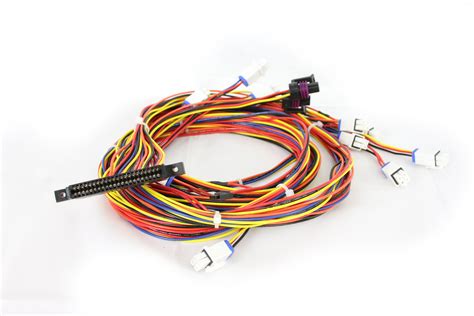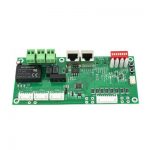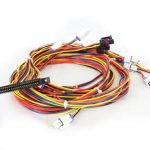Understand Your Requirements
Before you begin your search for a Cable Assembly Manufacturer, it’s crucial to have a clear understanding of your specific requirements. Consider the following aspects:
Cable Type and Specifications
Determine the type of cables you need, such as:
– Coaxial cables
– Flat ribbon cables
– Multi-conductor cables
– Fiber optic cables
Define the technical specifications, including:
– Conductor material and gauge
– Insulation and jacket materials
– Shielding requirements
– Connector types and configurations
Application and Environment
Identify the intended application and environment for your cable assemblies:
– Indoor or outdoor use
– Temperature range
– Chemical exposure
– Mechanical stress and strain
Production Volume and Lead Time
Estimate your production volume requirements:
– Prototype quantities
– Low-volume production
– High-volume production
Determine your desired lead time for:
– Sample development
– Production runs
– Delivery
Evaluate Manufacturer Capabilities
Once you have a clear understanding of your requirements, evaluate potential cable assembly manufacturers based on their capabilities.
Manufacturing Facilities and Equipment
Assess the manufacturer’s production facilities and equipment:
– Manufacturing space and capacity
– Automated assembly lines
– Cutting, stripping, and crimping machines
– Molding and overmolding equipment
– Testing and inspection equipment
Quality Management System
Verify the manufacturer’s commitment to quality:
– ISO 9001 certification
– IPC/WHMA-A-620 compliance
– In-process quality control
– Final inspection and testing procedures
– Traceability and record-keeping
Engineering and Design Support
Evaluate the manufacturer’s engineering and design capabilities:
– Experienced design engineers
– 3D modeling and CAD software
– Prototyping and testing services
– Design for manufacturability (DFM) feedback
Certifications and Compliance
Ensure the manufacturer meets relevant certifications and compliance standards:
– UL, CSA, and CE certifications
– RoHS and REACH compliance
– Military and aerospace standards (MIL-SPEC, AS9100)
– Industry-specific certifications (IATF 16949 for automotive, ISO 13485 for medical)
Consider Flexibility and Scalability
As your business grows and evolves, your cable assembly needs may change. Look for a manufacturer that offers flexibility and scalability.
Customization Options
Assess the manufacturer’s ability to accommodate custom requirements:
– Non-standard cable lengths and configurations
– Special labeling and packaging
– Private labeling and branding
Minimum Order Quantities (MOQs)
Verify the manufacturer’s MOQ policies:
– Low MOQs for prototypes and small production runs
– Flexibility to adjust MOQs based on your needs
Production Capacity and Scalability
Evaluate the manufacturer’s capacity to scale production:
– Ability to ramp up production quickly
– Flexibility to handle fluctuations in demand
– Contingency plans for unexpected spikes in orders

Assess Supply Chain and Logistics
A reliable and efficient supply chain is essential for timely delivery and cost-effectiveness.
Raw Material Sourcing
Inquire about the manufacturer’s raw material sourcing practices:
– Relationship with reliable suppliers
– Ability to source hard-to-find components
– Inventory management and stock levels
Lead Time and Delivery
Assess the manufacturer’s lead time and delivery performance:
– Consistent and predictable lead times
– On-time delivery track record
– Flexibility to accommodate rush orders
Shipping and Logistics
Evaluate the manufacturer’s shipping and logistics capabilities:
– Global shipping and distribution network
– Experienced logistics team
– Packaging and labeling for safe transit
Evaluate Communication and Customer Service
Effective communication and responsive customer service are crucial for a successful partnership with your cable assembly manufacturer.
Responsive and Accessible
Assess the manufacturer’s communication and responsiveness:
– Prompt response to inquiries and requests
– Multiple communication channels (phone, email, chat)
– Regular project updates and status reports
Technical Support and Problem-solving
Evaluate the manufacturer’s technical support and problem-solving capabilities:
– Knowledgeable and experienced technical support team
– Willingness to collaborate and provide solutions
– Proactive approach to addressing issues
Cultural Fit and Long-term Partnership
Consider the manufacturer’s cultural fit and potential for a long-term partnership:
– Shared values and business philosophy
– Open and transparent communication
– Commitment to continuous improvement
Compare Pricing and Value
While price is an important consideration, it should not be the sole deciding factor when choosing a cable assembly manufacturer.
Cost vs. Quality
Evaluate the balance between cost and quality:
– Competitive pricing without compromising quality
– Value-added services and support
– Total cost of ownership (TCO) consideration
Transparent and Detailed Quotations
Ensure the manufacturer provides transparent and detailed quotations:
– Itemized breakdown of costs
– Clear terms and conditions
– No hidden fees or surprises
Value-added Services
Consider the value-added services offered by the manufacturer:
– Design and engineering support
– Prototyping and testing
– Inventory management and consignment
– Kanban and just-in-time (JIT) delivery
FAQ
1. How do I determine the right cable assembly manufacturer for my project?
To determine the right cable assembly manufacturer, consider the following factors:
– Technical capabilities and manufacturing facilities
– Quality management system and certifications
– Flexibility and scalability to meet your evolving needs
– Supply chain reliability and logistics capabilities
– Communication and customer service responsiveness
– Pricing and value-added services
2. What certifications should I look for in a cable assembly manufacturer?
Look for certifications relevant to your industry and requirements, such as:
– ISO 9001 for quality management
– IPC/WHMA-A-620 for cable and wire harness assemblies
– UL, CSA, and CE for safety and performance
– RoHS and REACH for environmental compliance
– Industry-specific certifications (e.g., IATF 16949 for automotive, ISO 13485 for medical)
3. How important is the manufacturer’s location?
The importance of the manufacturer’s location depends on your specific needs and priorities. Consider factors such as:
– Proximity to your manufacturing facilities or end customers
– Time zone differences and communication ease
– Shipping costs and delivery lead times
– Local language and cultural understanding
4. What should I expect in terms of lead time and pricing?
Lead times and pricing can vary depending on the manufacturer and your specific requirements. Generally, expect:
– Longer lead times for custom or complex assemblies
– Shorter lead times for standard or high-volume orders
– Competitive pricing based on volume and value-added services
– Transparency in quotations and pricing breakdowns
5. How can I ensure a successful long-term partnership with my cable assembly manufacturer?
To foster a successful long-term partnership:
– Clearly communicate your expectations and requirements
– Maintain open and transparent communication channels
– Collaborate on continuous improvement initiatives
– Share long-term business plans and forecasts
– Conduct regular performance reviews and address any issues promptly
| Factor | Consideration |
|---|---|
| Cable Type and Specifications | Conductor material, insulation, shielding, connectors |
| Application and Environment | Indoor/outdoor use, temperature range, chemical exposure, mechanical stress |
| Production Volume and Lead Time | Prototype quantities, low/high-volume production, sample and production lead times |
| Manufacturing Facilities and Equipment | Production space, automated assembly lines, testing equipment |
| Quality Management System | ISO 9001, IPC/WHMA-A-620, quality control, inspection, traceability |
| Engineering and Design Support | Experienced design engineers, CAD software, prototyping, DFM feedback |
| Certifications and Compliance | UL, CSA, CE, RoHS, REACH, industry-specific certifications |
| Customization Options | Non-standard lengths, special labeling, private branding |
| Minimum Order Quantities (MOQs) | Low MOQs for prototypes, flexibility to adjust MOQs |
| Production Capacity and Scalability | Ability to ramp up production, handle demand fluctuations |
| Raw Material Sourcing | Relationship with suppliers, hard-to-find components, inventory management |
| Lead Time and Delivery | Consistent lead times, on-time delivery, rush order flexibility |
| Shipping and Logistics | Global shipping network, experienced logistics team, safe packaging |
| Communication and Responsiveness | Prompt response, multiple communication channels, project updates |
| Technical Support and Problem-solving | Knowledgeable support team, collaboration, proactive issue resolution |
| Cultural Fit and Long-term Partnership | Shared values, open communication, continuous improvement commitment |
| Cost vs. Quality | Competitive pricing, value-added services, total cost of ownership |
| Transparent and Detailed Quotations | Itemized cost breakdown, clear terms, no hidden fees |
| Value-added Services | Design support, prototyping, inventory management, Kanban/JIT delivery |
By carefully considering these tips and evaluating potential cable assembly manufacturers based on your specific requirements, you can make an informed decision and select the perfect partner for your business. A well-chosen manufacturer will not only provide high-quality cable assemblies but also offer the flexibility, scalability, and support necessary for your long-term success.






Leave a Reply